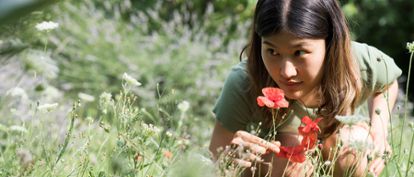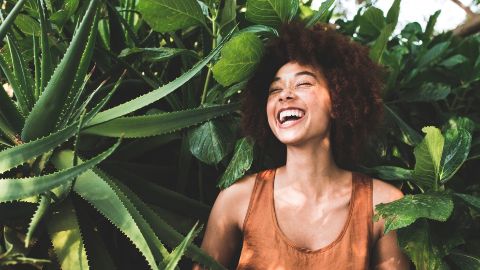Why do we use Palm Oil?

Palm oil is an important raw material, also in natural cosmetics. Since 2011, we have been sourcing palm oil from certified organic cultivation and are working to protect the rainforests.
Palm oil is not inherently bad

It’s virtually impossible to imagine natural cosmetics without palm oil. Weleda soaps, for example, contain crude palm oil, and for many of our natural skin care products contain palm derivatives. Palm oil has some very positive properties. It does not need to be chemically hardened, remains stable when heated and has a long shelf life. It is a very efficient crop, needing much less land than soybean or sunflower plants to produce the same amount of oil.
Sustainable cultivation, not rainforest destruction

Unfortunately, large areas of rainforest are often cleared for oil palm plantations. The biodiversity of the rainforests is unique, and their soils are huge carbon reservoirs. Deforestation of the rainforest not only destroys biodiversity as the basis of life, but also accelerates climate change. We want to change that. Since 2011, we have sourced pure organic and fair trade palm oil from Brazil, which certifies that no rainforest is destroyed for its cultivation.
No rainforest for palm plantations

Much less palm oil is used for cosmetics than for food. Nevertheless, we are committed to ensuring that no more rainforest is cleared for palm oil plantations. This is the only way to preserve biodiversity, protect the climate and produce sustainable palm oil at the same time. Species conservation is climate protection. We have long advocated for palm plantations that are planted on fallow land, where no rainforest needs to be cut down.
We are committed to finding solutions

We are working to compensate for our use of palm-based raw materials in countries where the oil palm is cultivated. Many oil palm plantations destroy the rainforest, and along with it, the habitat of many animals, such as the orangutans on Borneo. The Borneo Orangutan Survival Foundation (BOSF) is working together with people in Indonesia to protect the last remaining orangutans and their habitat.
The BOSF runs the world’s largest primate conservation project, with two centres on the island where it rescues young orangutan orphans and releases them into protected rainforest areas. In order to help primates suffering from the impacts of palm oil production and to protect local biodiversity, we partnered with its German partner organization, BOS Germany. Through this partnership we are supporting sustainable community development in Borneo and the reforestation of the rainforest, so that orangutans can once again have a home.
I often think about how perfect nature is – and that my work helps to preserve this state of perfection.Annette Piperidis, Manager for Sustainable Sourcing at Weleda







